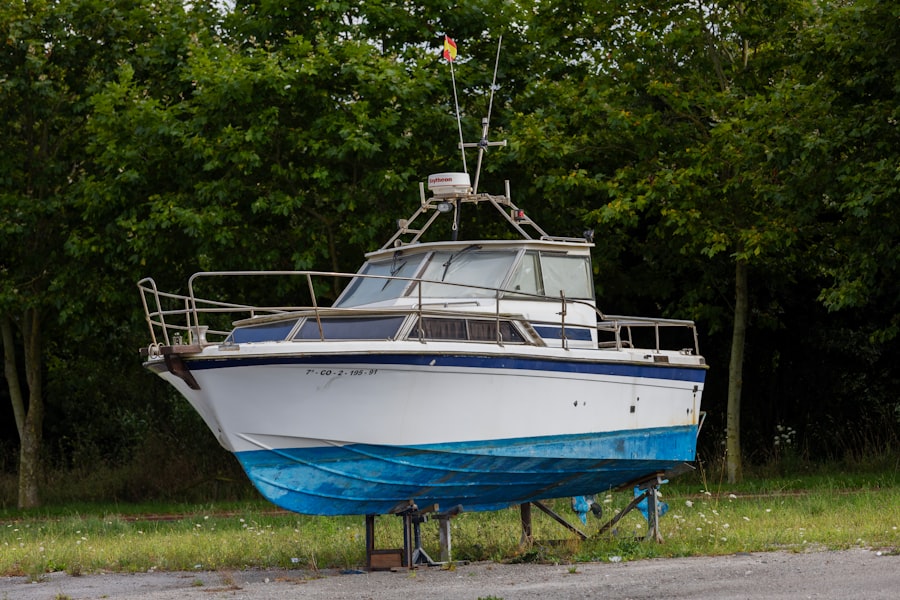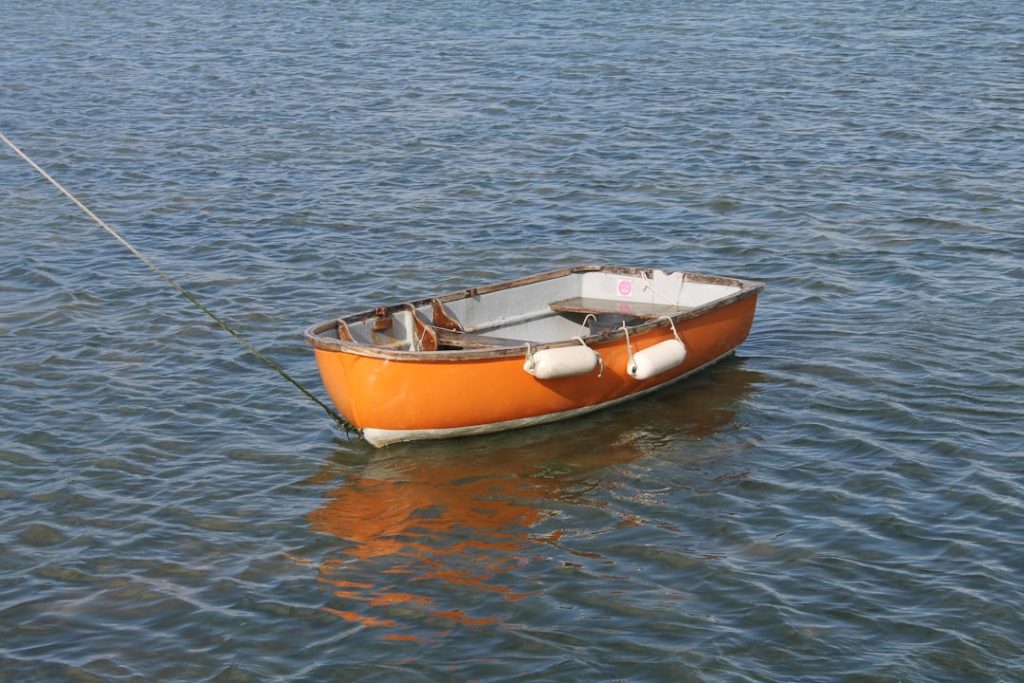The journey to boat ownership begins with identifying the right vessel that aligns with your needs and lifestyle. The first step in this process is to determine the primary purpose of the boat. Are you looking for a fishing boat, a sailboat for leisurely cruising, or perhaps a yacht for entertaining guests?
Each type of boat serves a different function, and understanding your intended use will significantly narrow down your options. For instance, if you plan to spend weekends fishing, a center console or a bass boat might be ideal. Conversely, if you envision long voyages with family and friends, a cabin cruiser or a sailboat could be more suitable.
Once you have a clear idea of what type of boat you need, the next step is to explore various marketplaces. Online platforms such as Boat Trader, YachtWorld, and Craigslist offer extensive listings of boats for sale, complete with photographs and detailed descriptions. Local marinas and boat shows can also be excellent resources for finding boats.
Attending these events allows you to see the vessels in person, ask questions directly to sellers, and even take some boats for a test ride. Networking with fellow boating enthusiasts can also yield valuable insights and leads on available boats that may not be listed online.
Key Takeaways
- Choose a boat that fits your needs by researching different types and uses.
- Thoroughly inspect the boat’s condition before purchase to avoid hidden issues.
- Negotiate price confidently by knowing market values and boat condition.
- Explore various financing options and understand legal requirements for boat ownership.
- Consider ongoing maintenance and insurance costs, and look for deals through trusted sellers and platforms.
Understanding the Different Types of Boats
The world of boating is diverse, with numerous types of vessels designed for specific activities and environments. Powerboats, for instance, are popular for their speed and ease of use. They come in various forms, including runabouts, cruisers, and jet boats.
Runabouts are typically smaller and ideal for day trips, while cruisers offer more space and amenities for longer excursions. On the other hand, sailboats provide a unique experience that relies on wind power, appealing to those who appreciate the art of sailing. They range from small dinghies to large yachts equipped for extended voyages.
In addition to powerboats and sailboats, there are specialized vessels such as fishing boats, pontoon boats, and personal watercraft (PWCs). Fishing boats are designed with features like rod holders and live wells to enhance the angling experience. Pontoon boats are known for their stability and spaciousness, making them perfect for social gatherings on the water.
PWCs, like Jet Skis, offer thrilling rides and are often used for recreational purposes. Understanding these distinctions is crucial when selecting a boat that fits your lifestyle and intended activities.
Tips for Inspecting a Boat for Sale

When you find a boat that piques your interest, conducting a thorough inspection is essential before making any commitments. Start by examining the exterior of the boat for any signs of damage or wear. Look for scratches, dents, or signs of corrosion on the hull.
Pay close attention to the condition of the gel coat; any fading or discoloration may indicate neglect or exposure to harsh elements. Additionally, check the transom and the area around the engine for any signs of water intrusion or rot. Moving inside the boat, inspect the interior thoroughly.
Look at the upholstery for tears or stains and check all storage compartments for signs of moisture or mold. Test all systems, including electrical components like lights and navigation equipment, as well as plumbing systems if applicable. If the boat has an engine, it’s wise to check its condition by looking for leaks or unusual noises during a test run.
If you’re not confident in your ability to assess the boat’s condition, consider hiring a marine surveyor who can provide a professional evaluation.
Negotiating the Best Price for a Boat
| Metric | Description | Typical Range | Tips for Negotiation |
|---|---|---|---|
| Initial Asking Price | The price the seller first lists the boat for | Varies widely by boat type and condition | Research market value to identify if price is fair |
| Market Value | Average price similar boats sell for in your area | Depends on boat size, age, and features | Use as a benchmark to avoid overpaying |
| Inspection Cost | Fee for professional boat inspection | 100 – 500 | Invest in inspection to uncover issues for negotiation leverage |
| Negotiation Margin | Typical percentage below asking price buyers aim for | 5% – 15% | Start lower to leave room for compromise |
| Repair Estimate | Cost to fix any issues found during inspection | Varies by condition | Use repair costs to justify price reduction |
| Final Agreed Price | Price both parties settle on after negotiation | Usually below initial asking price | Ensure price reflects boat condition and market value |
| Closing Costs | Additional fees such as registration, taxes, and transfer | 1% – 5% of final price | Factor into total budget when negotiating |
Once you’ve completed your inspection and are satisfied with the boat’s condition, it’s time to enter the negotiation phase. Understanding the market value of similar boats is crucial in this process. Research comparable models in terms of age, condition, and features to establish a baseline price.
Websites like NADA Guides or Kelley Blue Book can provide valuable insights into fair market values. Armed with this information, you can approach negotiations with confidence. When negotiating, it’s important to remain calm and composed.
Start by making an offer that reflects your research but leaves room for negotiation. Be prepared for counteroffers and maintain flexibility in your discussions. Highlight any issues you discovered during your inspection as leverage to justify your offer.
For example, if you found minor repairs needed or if the boat has been on the market for an extended period, use these points to negotiate a better price. Remember that successful negotiation is often about finding common ground where both parties feel satisfied with the outcome.
Financing Options for Buying a Boat
Financing a boat purchase can be approached in several ways depending on your financial situation and preferences. One common method is obtaining a loan from a bank or credit union specifically designed for marine purchases. These loans typically offer competitive interest rates and terms that can range from five to twenty years.
When applying for financing, lenders will consider factors such as your credit score, income level, and debt-to-income ratio to determine eligibility. Another option is to explore financing through the dealer if you’re purchasing from a broker or dealership. Many dealers have partnerships with financial institutions that can streamline the loan process and sometimes offer promotional rates or incentives.
Additionally, some buyers opt for personal loans or home equity lines of credit as alternative financing methods. Each option has its pros and cons; therefore, it’s essential to evaluate which method aligns best with your financial goals and capabilities.
Understanding the Legalities of Buying a Boat

Navigating the legal aspects of purchasing a boat is crucial to ensure a smooth transaction and protect your investment. One of the first steps is verifying the boat’s title status. Ensure that there are no liens against it and that the seller has clear ownership rights.
Requesting a title search can help uncover any potential issues that could complicate ownership transfer later on. Additionally, familiarize yourself with local regulations regarding boat registration and licensing requirements. Most states require boats to be registered with their respective Department of Motor Vehicles (DMV) or similar agency before they can be legally operated on public waters.
This process often involves submitting proof of ownership, paying registration fees, and sometimes passing safety inspections. Understanding these legalities not only helps you avoid fines but also ensures that you are compliant with local laws governing boating activities.
Maintenance and Insurance Considerations for Boat Ownership
Owning a boat comes with ongoing responsibilities that include regular maintenance and securing appropriate insurance coverage. Maintenance is vital to prolonging the life of your vessel and ensuring safe operation on the water. This includes routine tasks such as cleaning the hull, checking fluid levels in the engine, inspecting electrical systems, and winterizing the boat if you live in colder climates.
Developing a maintenance schedule can help keep track of these tasks and prevent costly repairs down the line. Insurance is another critical aspect of boat ownership that should not be overlooked. Marine insurance policies vary widely in coverage options; therefore, it’s essential to assess your needs carefully.
Factors such as the type of boat you own, how often you use it, and where you plan to operate it will influence your insurance requirements. Comprehensive coverage typically includes protection against theft, damage from accidents, liability coverage in case of injury to others while using your boat, and even coverage for environmental damage caused by fuel spills or other incidents.
Where to Find the Best Deals on Boats for Sale
Finding great deals on boats requires diligence and an understanding of where to look. Online marketplaces remain one of the most popular avenues for discovering boats at competitive prices. Websites like eBay Motors and Facebook Marketplace often feature listings from private sellers looking to sell quickly without dealer markups.
However, while these platforms can yield excellent deals, they also require careful scrutiny to avoid scams or misrepresented listings. Local auctions can also be an excellent source for finding bargains on boats. Many municipalities hold auctions where seized or surplus vessels are sold at significantly reduced prices.
Additionally, attending boat shows can provide opportunities not only to see various models but also to take advantage of show-specific discounts offered by dealers eager to make sales during these events. Networking within boating communities—whether through clubs or online forums—can also lead to insider knowledge about upcoming sales or private listings that may not be widely advertised.


